Güde – large chef’s knife – Alpha Pear – No. B805/26
The large Güde Chef’s Knife – Alpha Pear B805/26 – is a classic German chef’s knife. The large solid blade is optimized for cutting, weighing and chopping vegetables, meat and fish and is also suitable for processing large pieces of meat and fish.
- Blade length: 26 cm
- Total length: 46 cm
- Weight: 462 gram
- Hardness: 57-58 HRc Rockwell
- Pear wood handle
- Chrome vanadium molybdenum knife steel
- stainless
- forged
- ice-hardened
Güde is a Solingen knife manufacturer with over 100 years of tradition. The knives of the Alpha Pear series are forged by hand in small quantities. The blades are made of forged chrome-vanadium-molybdenum knife steel. Each Alpha Pear knife is processed in 40 manual operations.
The Alpha Pear series was launched on the occasion of Güde’s admission – by the Jeunes Restaurateurs d’Europe, Germany section – to the circle of Preferred Suppliers. The handle scales made of finely polished and velvety pear wood are fixed by three rivets
The knives are stainless ice-hardened and hand-sharpened. Do not put them in the dishwasher.
All knives lose their sharpness over time. Professional chefs sharpen their knives once briefly with the sharpening steel before each operation. The knife is then even after years sharp as on the first day. A sharpening steel should be at least 26cm long. The hardness and the surface are also crucial for a really sharp knife. With a sharpening steel from Güde you are making the right decision.
Properly sharpen knives
Right-handed people take the knife in their right hand and the sharpening steel in their left. Then the knife, at an angle between 15-20 degrees, is drawn evenly from the shaft to the tip of the knife over the entire steel. Alternate about ten times each.
Professional chefs pull their knives over the sharpening steel before every operation and thus permanently maintain the sharpness of their Güde knives.
Care instructions
Fine knives should be cleaned the way they were made: by hand. In most cases, it is quite sufficient to wipe the blade with a damp cloth. You should make sure that the knife is not left uncleaned for a long time. There are food residues (e.g. lemons) whose acids can attack even high-quality steel. Please avoid working on the knife with corrosive or abrasive aids. High-quality knives do not belong in the dishwasher or loose in a drawer (risk of injury!).
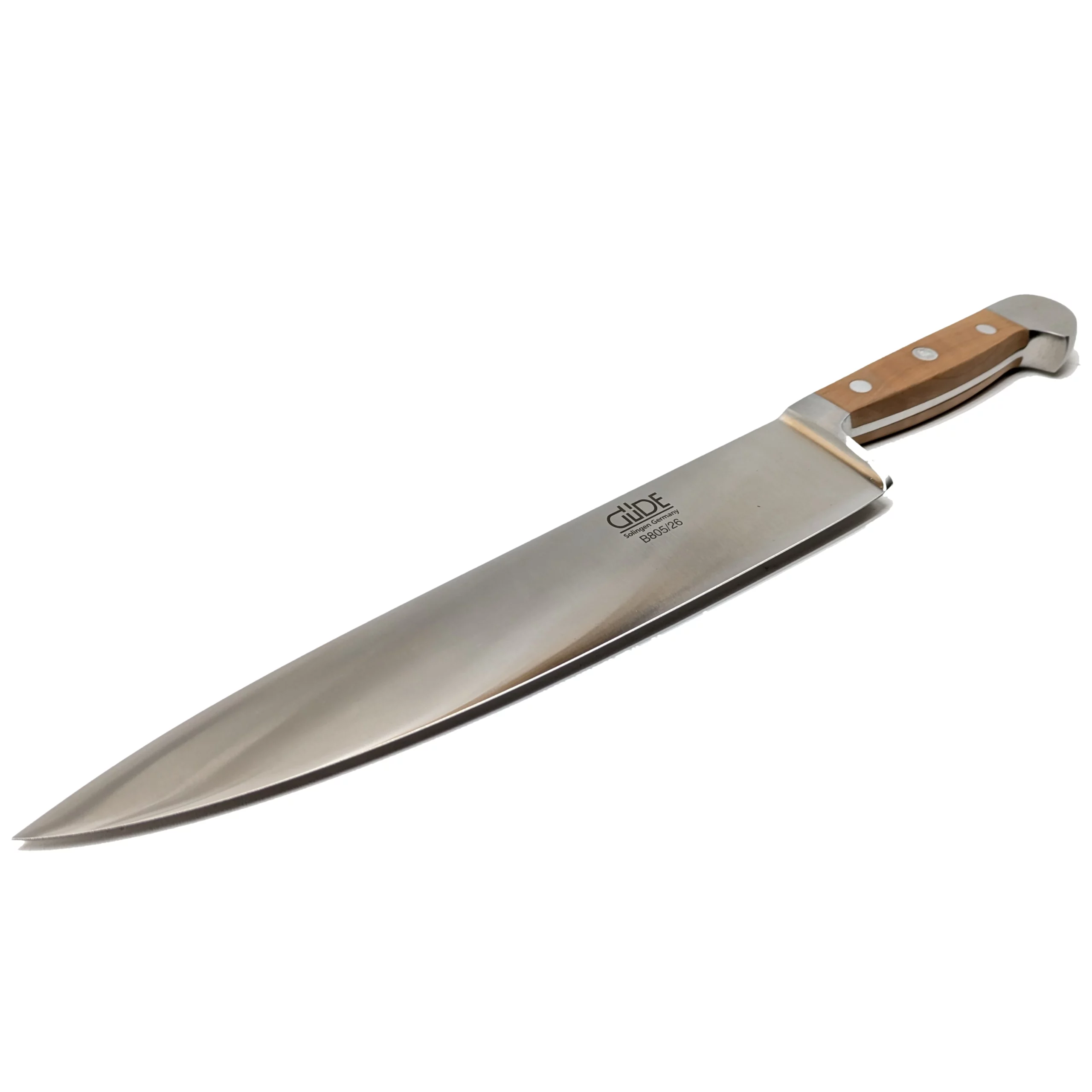
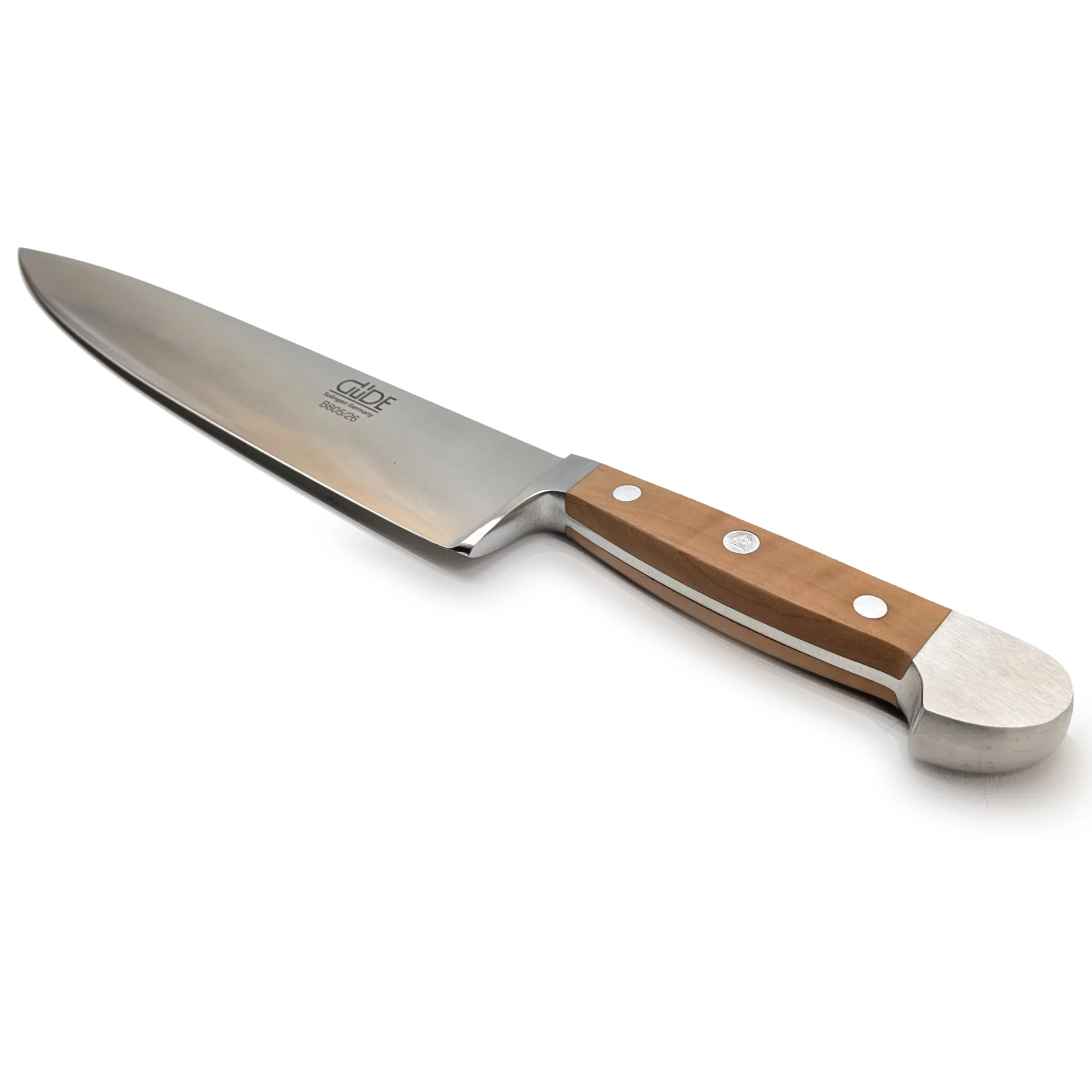
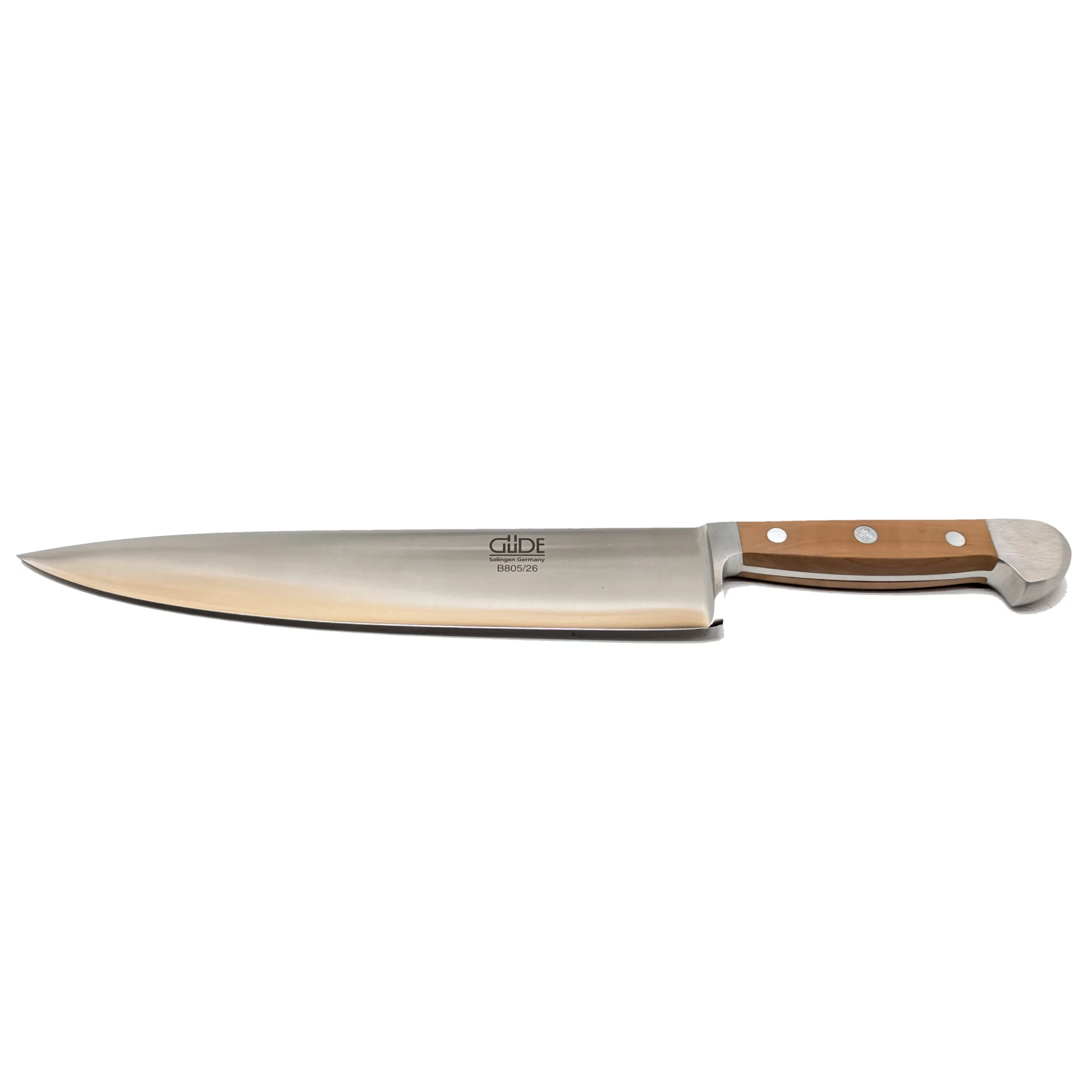
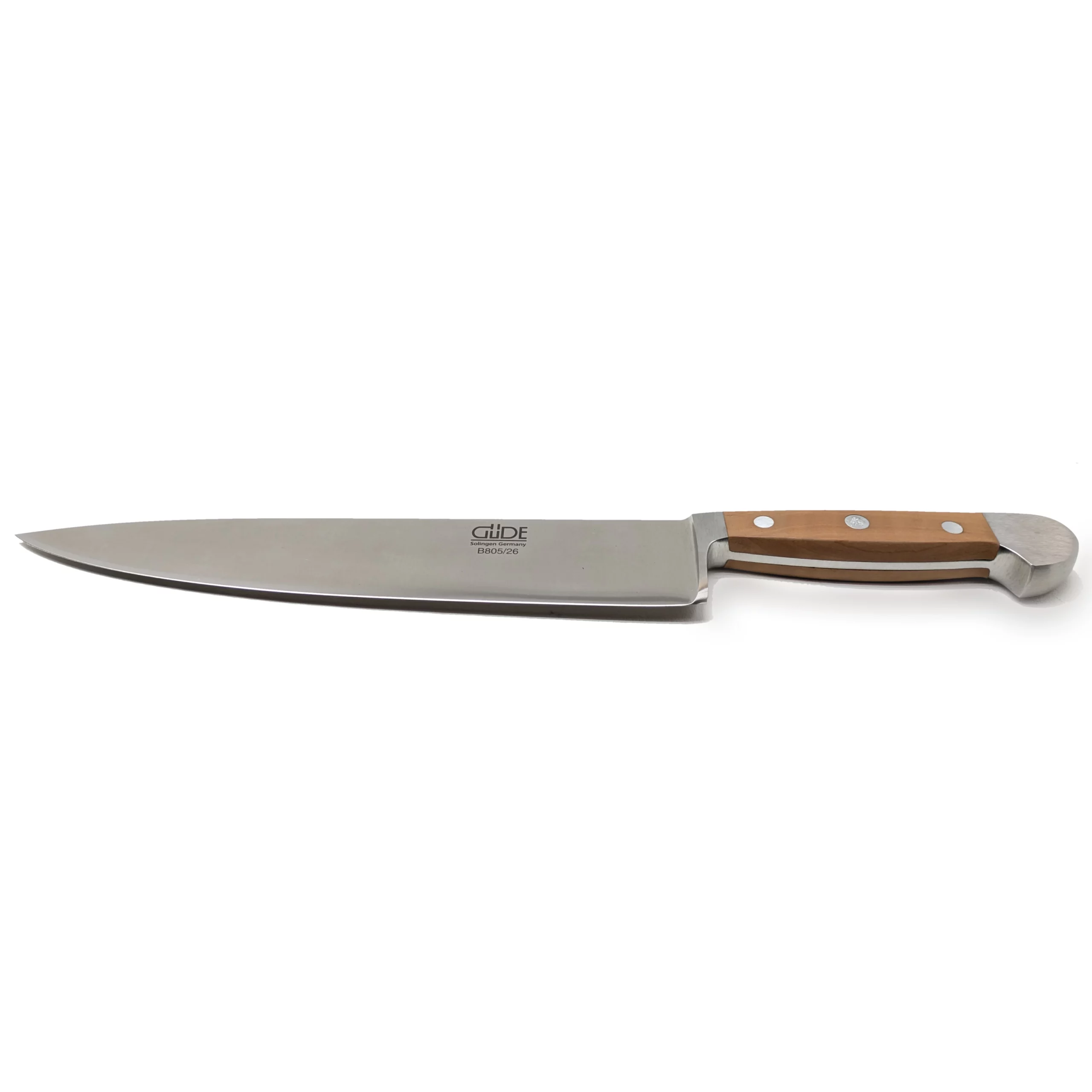


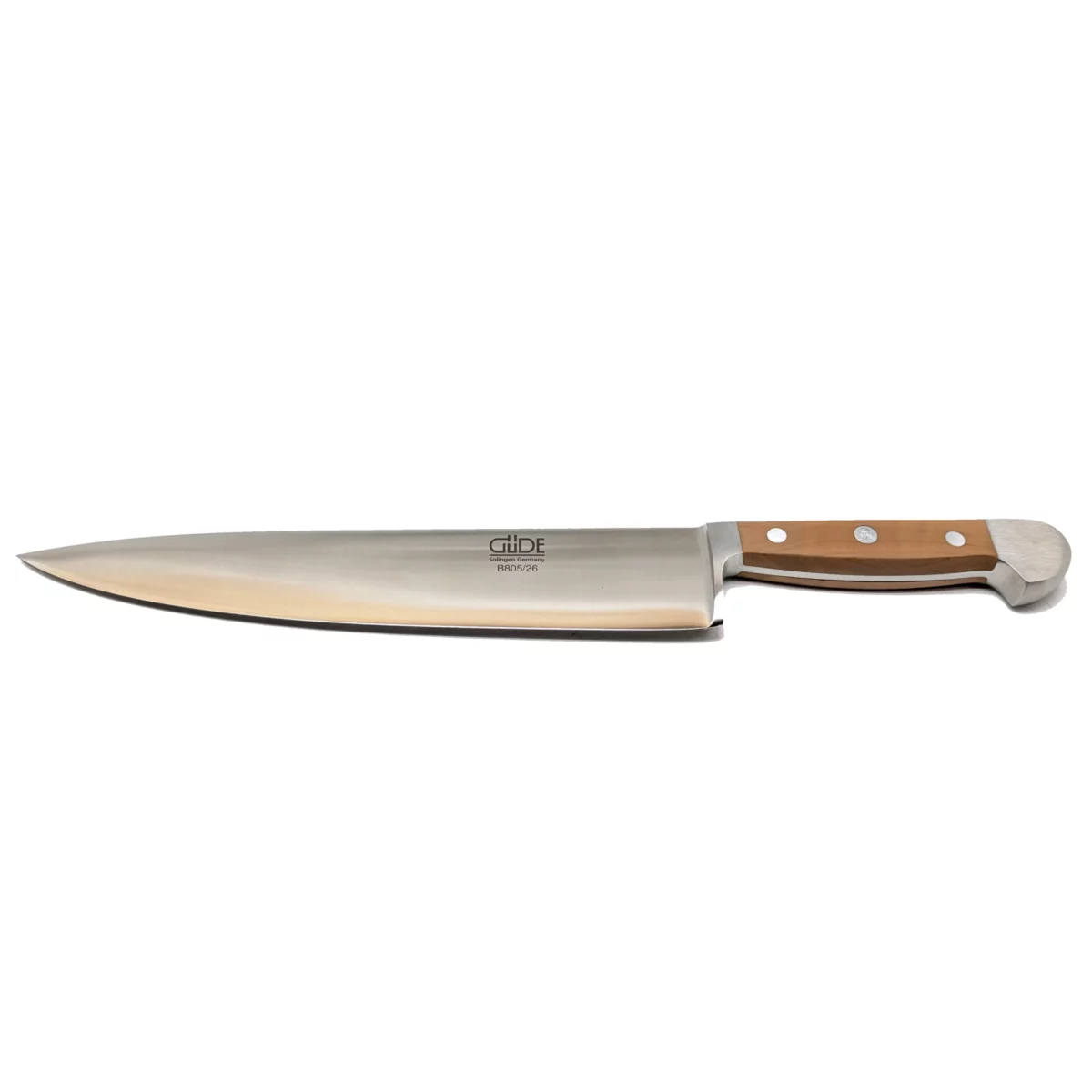
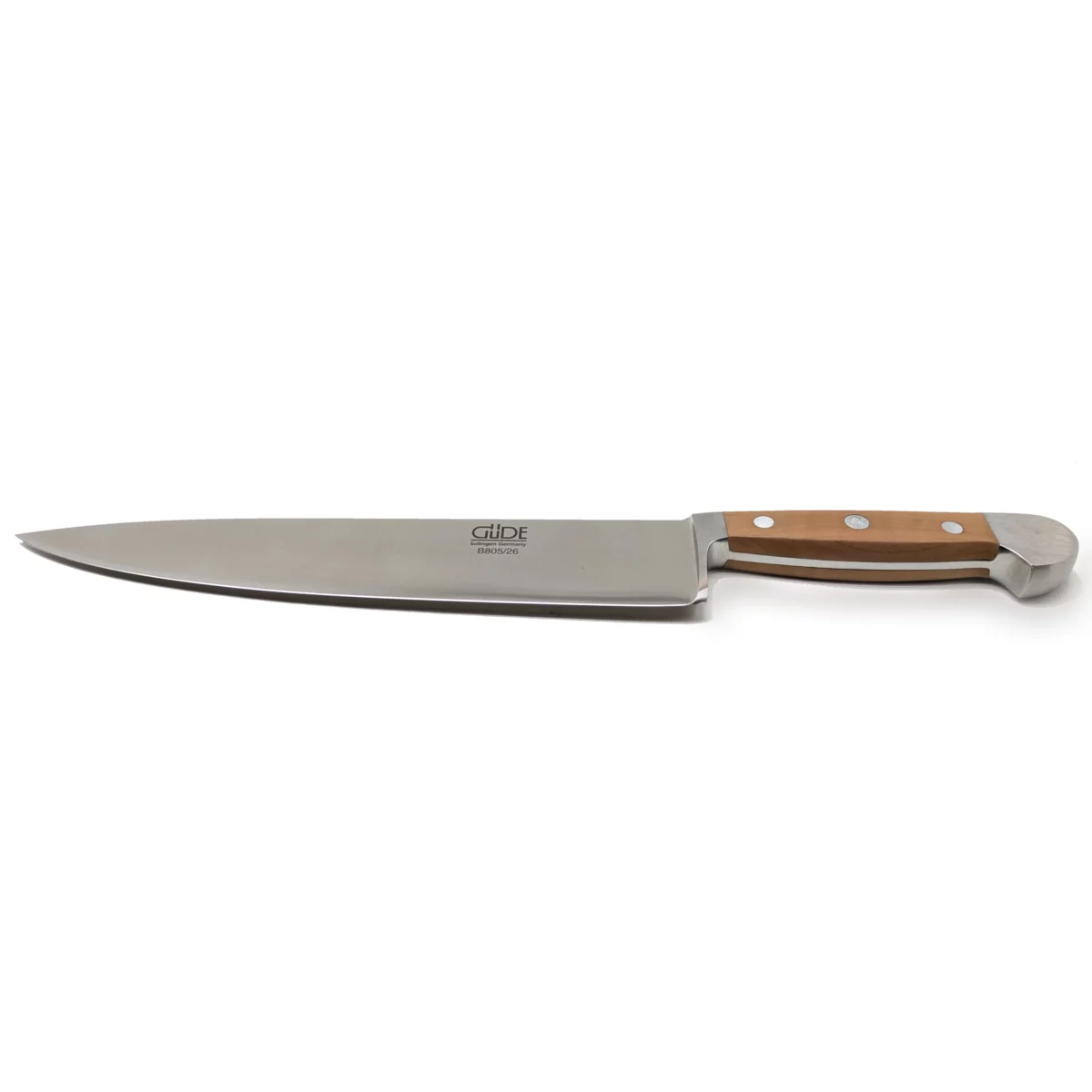


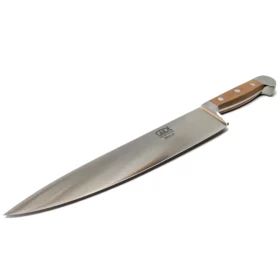
Reviews
There are no reviews yet